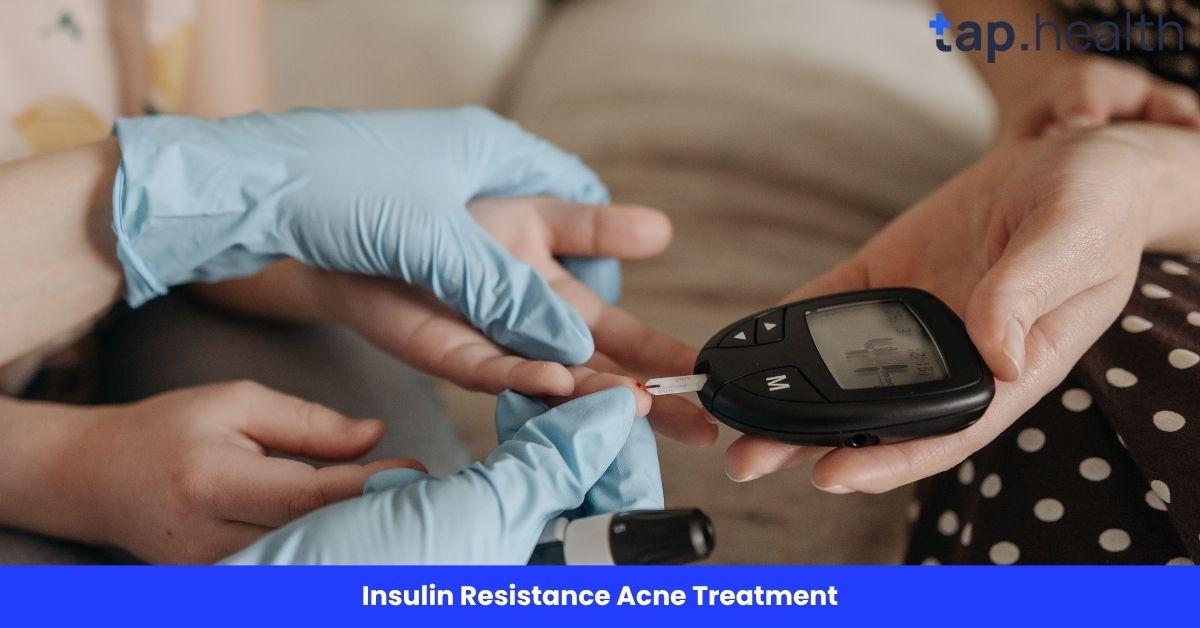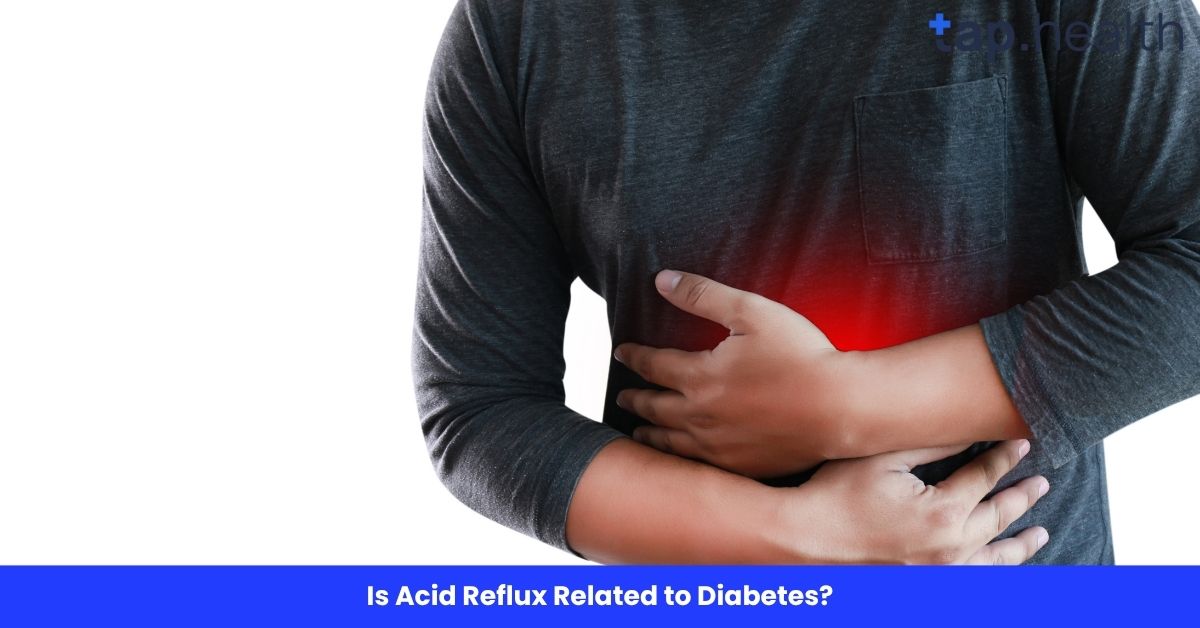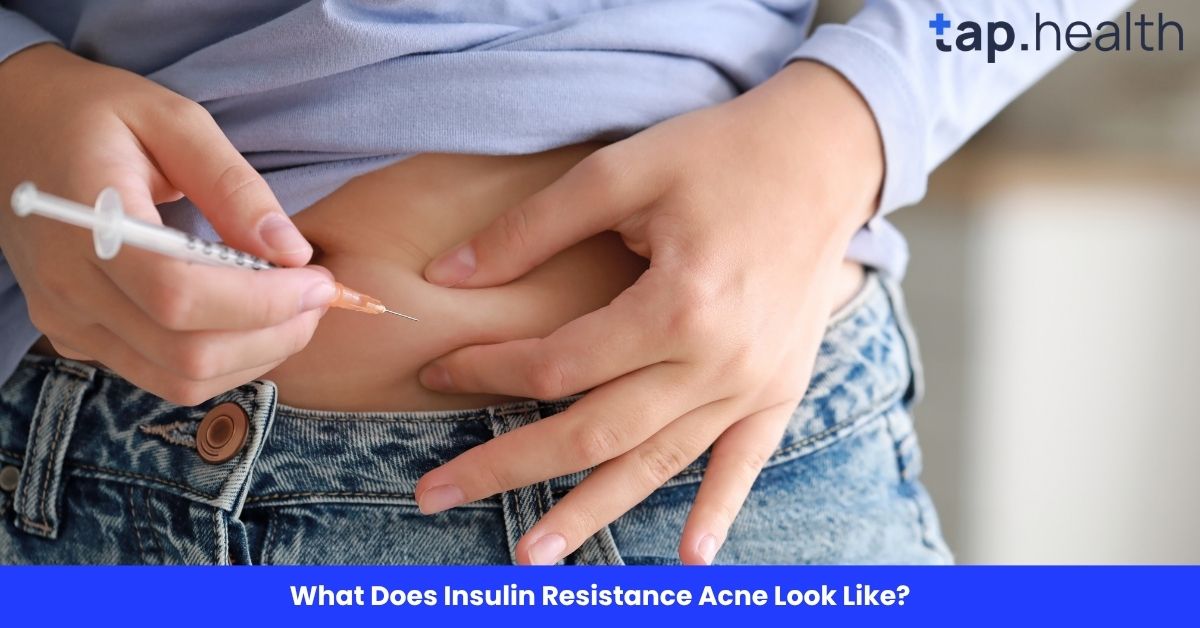Acne is a common skin condition that affects people of all ages, but did you know that it can be linked to insulin resistance? Insulin resistance, a condition where the body becomes less responsive to insulin, can lead to various health issues, including skin problems like acne. If you are struggling with acne and suspect that insulin resistance might be the cause, you are not alone. In this article, we will dive deep into the relationship between insulin resistance and acne, the mechanisms behind it, and how you can treat both effectively.
What is Insulin Resistance?
Before discussing how insulin resistance can cause acne, it’s essential to understand what insulin resistance is and how it affects your body.
Insulin and Its Role in the Body
Insulin is a hormone produced by the pancreas that helps regulate blood sugar levels. When you eat, food is broken down into glucose (sugar), which enters the bloodstream. Insulin helps the body’s cells absorb glucose from the blood and use it for energy. However, in individuals with insulin resistance, the body’s cells become less responsive to insulin, leading to higher levels of glucose in the blood.
What is Insulin Resistance?
Insulin resistance occurs when the body’s cells do not respond properly to insulin. As a result, the pancreas produces more insulin to try to compensate for the body’s inability to use it efficiently. Over time, this can lead to higher levels of insulin in the blood, which can cause several problems, including an increased risk of developing Type 2 diabetes.
Symptoms of Insulin Resistance
Some common symptoms of insulin resistance include:
- Increased hunger and thirst
- Fatigue
- Weight gain, particularly around the abdomen
- Difficulty losing weight
- Darkened skin patches, often on the neck, armpits, or groin (acanthosis nigricans)
- High blood sugar levels
How Insulin Resistance Causes Acne
Now that we understand what insulin resistance is, let’s look at how it contributes to acne. Acne is often caused by a combination of factors, including hormonal changes, excess oil production, clogged pores, and inflammation. Insulin resistance can affect several of these factors, which in turn can lead to acne.
1. Increased Insulin Levels and Sebum Production
One of the primary ways insulin resistance contributes to acne is through an increase in insulin levels in the bloodstream. High insulin levels can stimulate the production of androgens, which are male hormones present in both men and women. These hormones increase the size and activity of sebaceous (oil) glands in the skin, leading to more oil production. Excess oil can clog pores and create an environment for acne-causing bacteria to thrive, ultimately leading to breakouts.
2. Inflammation and Acne
Chronic inflammation is another key factor in the development of acne. Insulin resistance is associated with low-grade, chronic inflammation in the body. When inflammation occurs in the skin, it can lead to the formation of pimples, cysts, and other acne lesions. Insulin resistance may worsen this inflammation, making acne more severe and difficult to treat.
3. Blood Sugar Spikes and Acne Flare-Ups
In insulin resistance, the body struggles to regulate blood sugar levels effectively. This leads to frequent blood sugar spikes, which can trigger the release of stress hormones like cortisol. Elevated cortisol levels can increase oil production in the skin, leading to clogged pores and acne breakouts.
4. Hormonal Imbalance
Insulin resistance is linked to an imbalance in hormones, especially androgens. Elevated androgen levels can lead to an overproduction of sebum, which can clog pores and contribute to the formation of acne. In women, this can often resemble the symptoms of polycystic ovary syndrome (PCOS), a condition in which insulin resistance is common.
How to Treat Acne Caused by Insulin Resistance
Treating acne caused by insulin resistance requires addressing both the underlying insulin resistance and the acne itself. The good news is that by managing insulin resistance, you can improve your skin’s appearance and reduce breakouts. Here are several strategies to help treat acne caused by insulin resistance.
1. Treating Insulin Resistance
The first step in managing acne caused by insulin resistance is to address the insulin resistance itself. By improving insulin sensitivity, you can lower blood sugar and insulin levels, which can help reduce acne. Here are some ways to treat insulin resistance:
1.1. Improve Your Diet
A low-glycemic diet is beneficial for people with insulin resistance. High-glycemic foods (such as refined carbohydrates and sugary foods) cause rapid spikes in blood sugar, which can worsen insulin resistance and increase acne. By reducing your intake of high-glycemic foods and focusing on whole grains, fruits, vegetables, and lean proteins, you can improve your insulin sensitivity and overall health.
Foods to Include:
- Whole grains (brown rice, quinoa, oats)
- Lean proteins (chicken, turkey, fish, tofu)
- Low-glycemic fruits (berries, apples, pears)
- Non-starchy vegetables (broccoli, spinach, kale)
1.2. Exercise Regularly
Regular physical activity helps improve insulin sensitivity, which can reduce insulin resistance. Exercise helps the body use insulin more effectively, lowering blood sugar levels and reducing the production of excess sebum in the skin. Aim for at least 30 minutes of moderate exercise most days of the week.
1.3. Maintain a Healthy Weight
Losing weight, particularly if you’re overweight or obese, can significantly improve insulin sensitivity and reduce the risk of developing Type 2 diabetes. Weight loss can also help balance hormones, reducing androgen levels and the risk of acne. A combination of a balanced diet and regular exercise can help with weight management.
1.4. Consider Medication
In some cases, medications may be prescribed to treat insulin resistance. Metformin, a common drug used for Type 2 diabetes, is often prescribed to improve insulin sensitivity. Additionally, medications that regulate hormones, such as birth control pills or spironolactone, can help manage the hormonal imbalances that contribute to acne in women.
2. Treating Acne Directly
In addition to addressing insulin resistance, it’s important to treat the acne itself. Fortunately, several effective treatments are available for acne caused by insulin resistance.
2.1. Topical Treatments
Topical treatments can help reduce acne by controlling oil production, fighting bacteria, and promoting skin cell turnover. Some common topical treatments for acne include:
- Benzoyl Peroxide: Helps kill acne-causing bacteria and reduce inflammation.
- Salicylic Acid: Helps exfoliate the skin and prevent clogged pores.
- Retinoids (Retinol, Tretinoin): Promote cell turnover and prevent clogged pores, reducing the formation of new acne lesions.
2.2. Oral Medications
If topical treatments aren’t effective, oral medications may be recommended by a dermatologist. These include:
- Antibiotics (Doxycycline, Minocycline): Help reduce inflammation and control bacteria in the skin.
- Oral Contraceptives: Birth control pills can help regulate hormones and reduce acne, particularly in women with insulin resistance and hormonal acne.
- Spironolactone: An anti-androgen medication that helps block the effects of excess testosterone, reducing sebum production and acne.
2.3. Professional Treatments
For severe acne, professional treatments may be necessary. These can include:
- Chemical Peels: Help exfoliate the skin, reduce acne scarring, and improve skin texture.
- Laser Therapy: Targets acne-causing bacteria and reduces oil production.
- Microneedling: Stimulates collagen production to improve the appearance of acne scars.
Lifestyle Changes to Support Acne Treatment
In addition to dietary changes and medical treatments, certain lifestyle habits can help reduce the severity of acne caused by insulin resistance.
1. Get Enough Sleep
Adequate sleep is crucial for managing insulin resistance and acne. Poor sleep can increase cortisol levels, which can worsen both conditions. Aim for 7-9 hours of quality sleep each night to help regulate hormones and improve your skin’s appearance.
2. Reduce Stress
Stress is a significant trigger for acne and can worsen insulin resistance by raising blood sugar levels and increasing oil production in the skin. Practice stress-relieving techniques like yoga, meditation, or deep breathing exercises to manage stress levels.
3. Avoid Smoking
Smoking can impair blood circulation and increase inflammation in the body, which can make acne worse. Quitting smoking is beneficial for both insulin resistance and skin health.
Real-Life Scenario
Consider a young adult struggling with persistent acne despite trying various creams and medications. After consulting a doctor, they discover they have insulin resistance. By adjusting their diet to include low-glycemic foods, exercising regularly, and taking prescribed medications, they notice a gradual improvement in both acne and blood sugar levels.
Expert Contribution
Dermatologists and endocrinologists agree that acne linked to insulin resistance requires a dual approach:
- Skin care: Use non-comedogenic products and topical treatments like retinoids or benzoyl peroxide.
- Lifestyle adjustments: Maintaining stable blood sugar levels through diet and exercise can reduce acne flare-ups.
- Medical interventions: Doctors may prescribe medications like metformin to improve insulin sensitivity, which can indirectly improve acne.
Recommendations Grounded in Proven Research and Facts
- Follow a low-glycemic diet: Foods like whole grains, vegetables, and lean proteins help stabilize insulin levels.
- Regular physical activity: Exercise improves insulin sensitivity and overall skin health.
- Topical treatments: Retinoids, benzoyl peroxide, and salicylic acid remain effective for acne management.
- Monitor hormone levels: In some cases, doctors may recommend hormone testing to guide treatment.
- Avoid high-sugar and processed foods: Research shows that diets high in sugar can worsen both insulin resistance and acne.
How Tap Health Helps People with Diabetes
Tap Health is an AI-powered diabetes care app designed to make managing your health simple and practical. Tailored for Indian users, it helps track blood sugar levels, monitor carbohydrate intake, and maintain overall wellness — all from one convenient app.
Ways Tap Health Simplifies Diabetes Management
Managing diabetes can feel overwhelming, but Tap Health provides tools and insights to make daily care easier:
Accurate Meal Tracking – Log your meals or take a photo, and the app calculates carbohydrates, calories, and portion sizes, including Indian foods.
Blood Sugar Monitoring – Keep track of your glucose readings and see how your food and lifestyle choices affect your levels over time.
Timely Alerts – Get reminders for medications, meals, and glucose checks so you can follow your routine consistently.
Personalized Health Insights – The app analyzes your data and offers recommendations for diet, activity, and better blood sugar control.
Indian Meal Support – Access a wide selection of Indian recipes, regional dishes, and meal plans designed to suit your preferences.
Progress Visualization – Track your HbA1c results and glucose trends with clear, easy-to-read charts.
Expert Guidance – Connect directly with doctors and dietitians for professional advice and personalized care.
Frequently Asked Questions (FAQs) on Insulin Resistance Acne Treatment
1. Is acne a symptom of insulin resistance?
Yes, acne can be a symptom of insulin resistance. High insulin levels can lead to increased sebum production, which can clog pores and contribute to acne. Hormonal imbalances caused by insulin resistance also play a role in acne development.
2. Can treating insulin resistance help reduce acne?
Yes, managing insulin resistance through dietary changes, exercise, weight management, and medication can help reduce acne by lowering insulin levels and improving hormonal balance.
3. What is the best diet for managing acne and insulin resistance?
A low-glycemic diet, rich in whole grains, lean proteins, fruits, vegetables, and healthy fats, is beneficial for managing both insulin resistance and acne. Avoid high-glycemic foods, such as sugary snacks and processed carbohydrates.
4. Can birth control pills help with acne caused by insulin resistance?
Yes, birth control pills can help regulate hormones and reduce acne, especially in women with insulin resistance or PCOS, a condition often associated with insulin resistance.
5. What oral medications can help with acne caused by insulin resistance?
Oral medications like antibiotics, spironolactone, and oral contraceptives are commonly prescribed to treat acne caused by insulin resistance. These medications can help regulate hormones and reduce oil production in the skin.
Conclusion
Acne caused by insulin resistance can be effectively managed by addressing both the underlying insulin resistance and the acne itself. By making lifestyle changes, improving your diet, managing your weight, and following a comprehensive treatment plan, you can reduce acne flare-ups and improve your skin. If you are struggling with acne and suspect insulin resistance may be the cause, consult with your healthcare provider to develop a personalized treatment plan that addresses both conditions.


